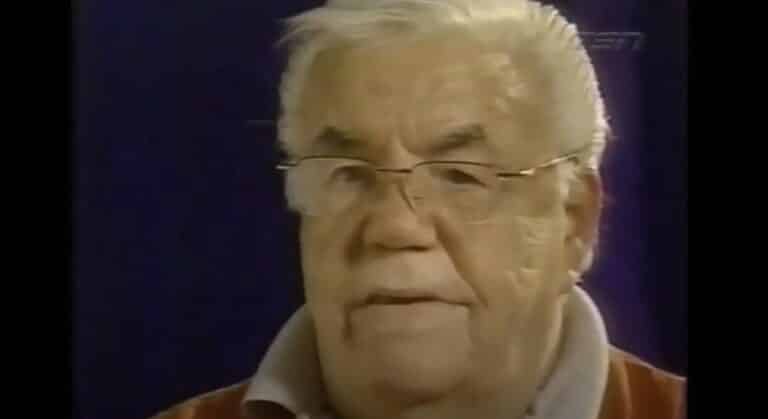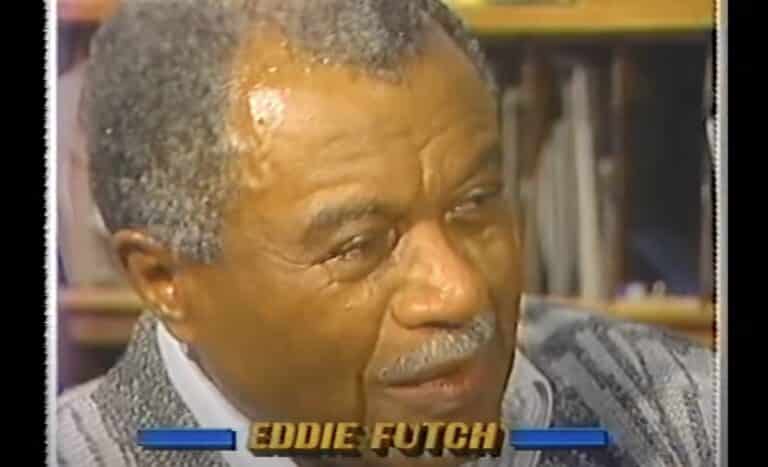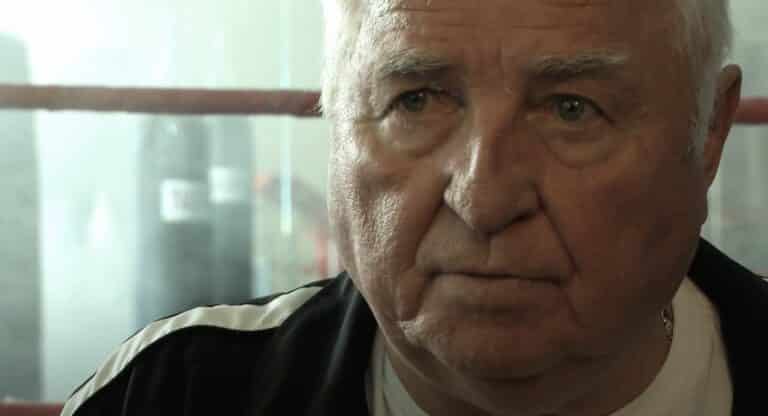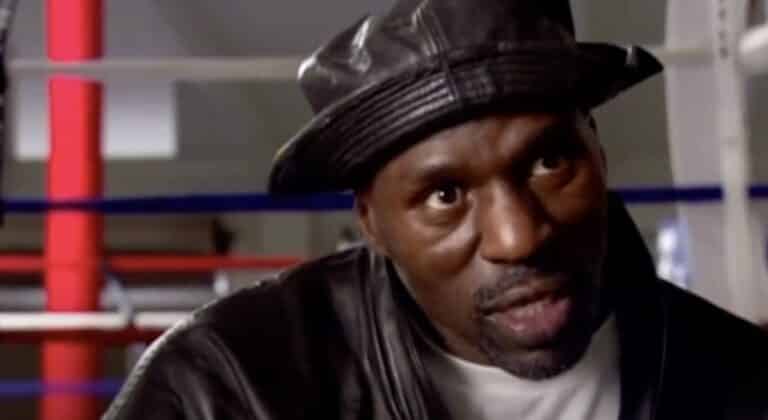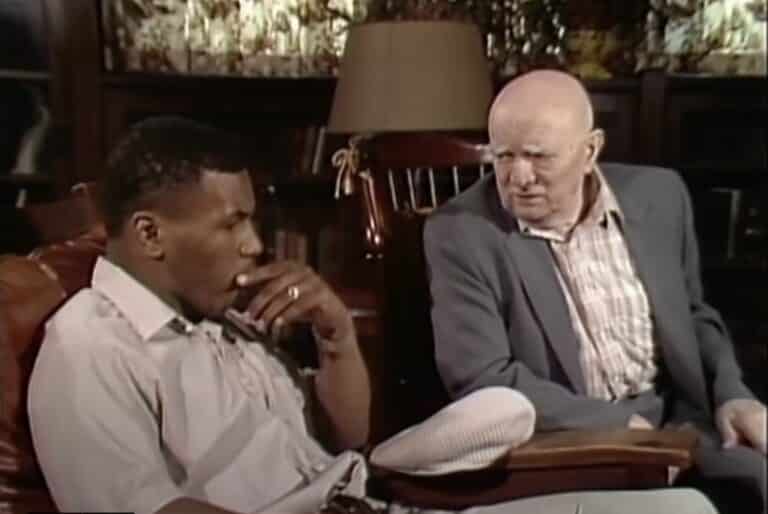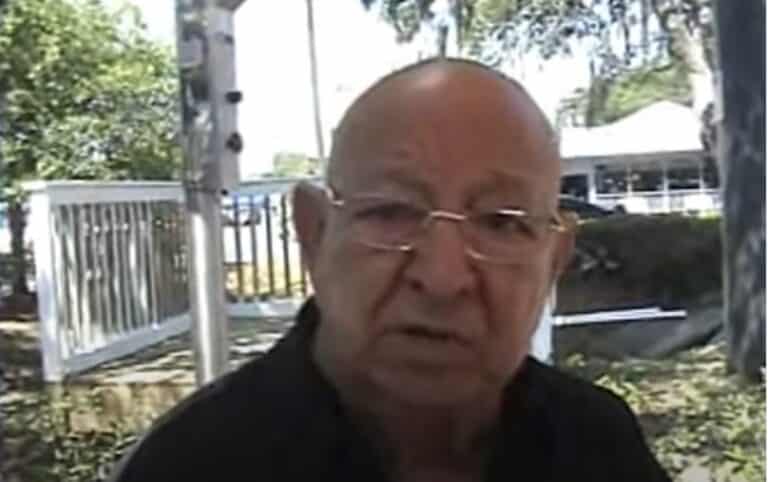Adam Booth – Boxing Coach Biography
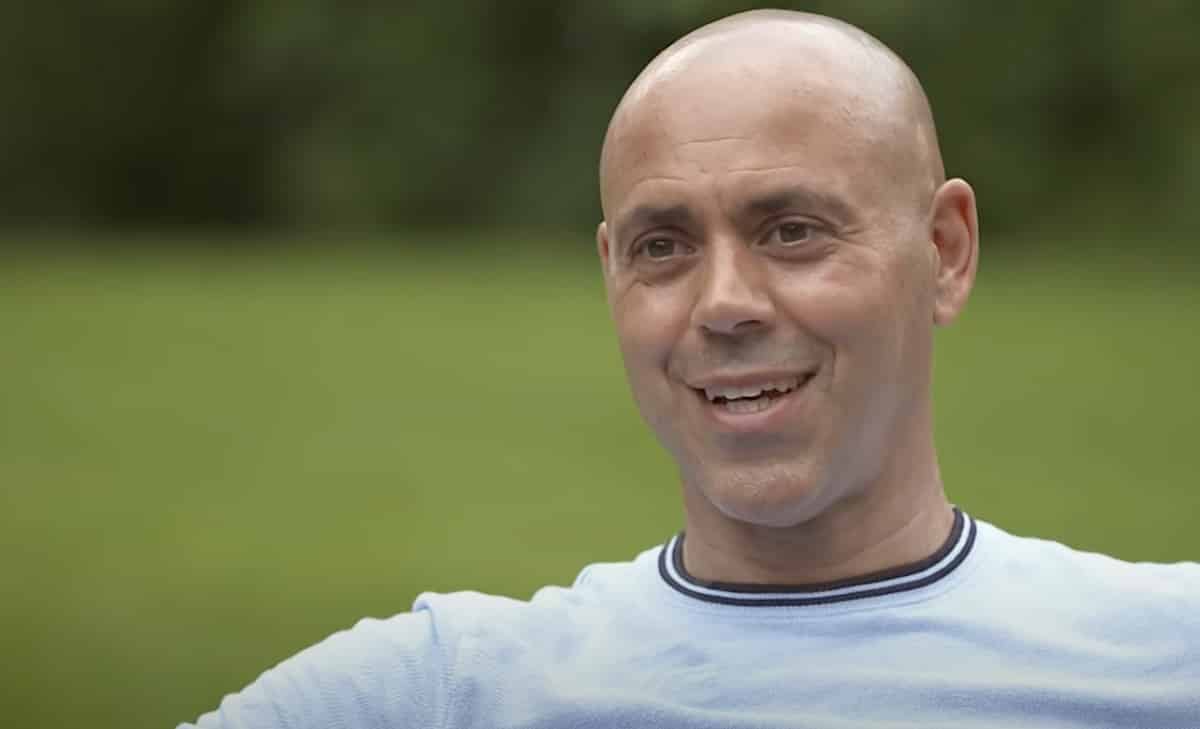
| Date of Birth: | December 1, 1968 |
| Place of Birth: | London, England |
| Gym: | Boxing Booth Gym |
| Location: | Merstham, Redhill, Surrey |
| Boxing Background: | Booth boxed as an amateur at the Winston Churchill ABC, Croydon ABC and the Lynn ABC boxing gyms, taking part in over 40 bouts |
| Notable Fighters: | David Haye, Andy Lee, George Groves |
Adam Booth’s Boxing Background
Adam Booth is one of the most high-profile boxing coaches in the UK, coach, mainly due to his work with David Haye, whom Booth guided to becoming the unified cruiserweight champion, and later the WBA version of the heavyweight title. Nicknamed “The Dark Lord”, Booth is widely respected for his intelligence, for his open-minded no-nonsense approach to boxing, and for being one of the sport’s true innovators.
While he may not have the roster of world champions on his CV that some coaches have, Booth has long been rated as one of the very best trainers in boxing, a trailblazer with radical ideas, the first of the current crop of highly intelligent young coaches that includes Ben Davidson and Shane McGuigan.
Born in London in 1968, Booth knew nothing of the sport of boxing that night in 1981 when his stepfather woke him in the early hours to go to the local cinema with him and watch the live broadcast of the welterweight unification bout between Sugar Ray Leonard and Tommy Hearns. Through bleary eyes the 12-year old Booth watched two superb fighters go at for 14 rounds of see-sawing action before Leonard battered Hearns to a stoppage defeat. The youngster was smitten, and he instantly knew what he wanted to do with his life.
However, long before he decided to give coaching a go, Booth wanted to be a boxer, just like his new idol Sugar Ray Leonard. Booth took part in over 40 amateur bouts, but on the eve of his professional debut he suffered a badly broken leg playing football. The brake was so bad, even when it healed he had lost the footwork that was the cornerstone of his fighting style. He knew his career in the ring was over.
Booth began working as a personal trainer, but would spend his spare time hanging out at his old boxing gym, the Fitzroy Lodge, where the coach Mick Carney was struggling to cope with the amount of youngsters keen to take up the sport. Booth suggested he could help Carney by taking a few of the youngsters “on the pads”. Carney gave him three to work with on a regular basis, one being a 16-year old whom Carney said was the most talented kid he’d ever seen, but also the laziest. That talented, lazy 16-year old was David Haye.
Adam Booth Becomes A Trainer
Almost instantly, the surly 16-year old Haye began to buy into Booth’s coaching methods, including the tips and pointers Booth gave him toward his boxing, and more importantly – his training. Booth was only 28, much younger than the other coaches at the Fitzroy Lodge, and he and Haye became friends. However just when it looked as if Booth could take the youngster to great things as an amateur, Mick Carney informed him that as he wasn’t a licensed amateur coach, he could take no further part in Haye’s development.
Undeterred, Booth became a professional boxing manager and trainer, and continued coaching Haye “on the quiet.” Their relationship became something of an open secret, with Haye jogging over to where Booth would be sitting prior to a bout to get his expert opinion on his opponent. In addition to coaching Haye, Booth went back to school and studied Anatomy and Physiology as well as Injury Rehabilitation, becoming an expert in those fields.
Haye proved to be an excellent amateur, compiling an 84-14 record, and reaching the final of the 2001 Amateur World Championships in the heavyweight class. When Haye elected to turn pro the following year, there was only one man he wanted to train him – Adam Booth.
David Haye
As an amateur Haye had boxed as a heavyweight, which is 201 lbs or less, with anything over being superheavyweight. In the pro ranks, that made him a cruiserweight, although at 6’3”, powerfully built and probably around 210 lbs in the ring, Haye was a huge cruiserweight.
Good looking, charismatic, well spoken and blessed with an all-action style and KO punch, Haye was marked for stardom from Day One as a pro. Haye had little problem blasting his way through his first 10 opponents, with only the Danish-based Congolese Lolenga Mock giving him trouble in his sixth fight in 2003. Mock floored Haye in the second, but the Brit rallied to TKO his opponent in the fourth, and remains the only man to have stopped Mock in 60 fights.
In 2004, after less than two years as a pro but with 10 straight KO’s, Adam Booth selected former WBO cruiserweight champion Carl Thompson as Haye’s next opponent. Aged 42, Thompson had won his last four fights, but he’d been stopped four times in his career, and Booth figured that he would be an excellent name on Haye’s resume. All seemed to be going to plan early when Haye battered Thompson from pillar to post. However Thompson was tough as nails and incredibly fit, and when Haye suddenly appeared to have punched himself out, Thompson quickly took control of the action, handing the youngster a terrible battering before KO’ing him in the fifth round.
Booth would later say that the Thompson fight was the best thing that ever happened to both himself and David Haye. Booth became a far better trainer after that experience, and was able to make radical adjustments to Haye’s training regimen and in-fight mentality.
Booth and Haye Win World Titles
Nine fights later in 2007, Haye found himself in a similar situation in his world title shot in Paris against the fearsome punching Frenchman Jean Marc Mormeck for the WBC and WBA titles. Haye started well against the shorter, powerfully built Mormeck, but when the Frenchman clubbed him to the canvas in the fourth round, it looked like Déjà vu (all over again!) However this time around, Haye wasn’t gassed or badly hurt, and he was able to recover well, regroup and come firing back to flatten Mormeck in the seventh round in what remains Haye’s career best victory.
After destroying Welshman Enzo Maccarinelli in two rounds to add the WBO title to his collection, Haye made the move up to heavyweight, and instantly became one of the main draws in the division. In 2008 the heavyweight division was dominated by the towering Klitschko brothers Wladimir and Vitali, and Booth cleverly selected the glass jawed IBF champion Wladimir as their preferred target, rather than the cement-chinned WBC belt holder Vitali.
In 2009 Booth negotiated Haye a shot at WBA champion Nicolai Valuev of Russia. At 7’ tall and scaling 320 lbs, Valuev remains the largest world champion in history, and taking on such a behemoth was something few fighters were up for. However Haye not only took Valuev on in his adopted homeland of Germany, he proceeded to run rings round the lumbering Russian for 11 rounds, almost flooring him with a left hook in the 12th, and escaping with a narrow points win and the WBA belt.
In 2011 after two title defenses, Haye finally took on Wladimir Klitschko in a huge unification fight in front of 60,000 fans in a German soccer stadium. Many experts expected Haye to win by KO, but right from the start he found it hard to deal with the 6’7” Klitschko’s smart boxing and nimble footwork, and despite Booth imploring him to take more risks, Haye was soon reduced to simply following Klitschko around the ring and trying to land that one big punch. It never came, Haye lost by a wide margin, and despite remaining a huge star in the division, he would never fight for the title again.
Adam Booth and David Haye would team up just once more, for another huge fight the following year against Dereck Chisora, which Haye won on a fifth round KO. Haye wouldn’t fight again for four years, during which time he and Booth would sadly grow apart. Their relationship today is strained, but hopefully eventually they will put their differences behind them and maybe even work together in a manager-promoter capacity.
George Groves
Adam Booth has mostly abstained from being a “gun for hire”, a coach who will train an established fighter, often just for one fight. Booth prefers to take a fighter all the way from amateur status to the pinnacle of pro boxing. Such a fighter was George Groves, whom Booth signed in 2008, after Groves had won his second consecutive ABA middleweight title.
Thanks to Booth, Groves had a similarly explosive style to David Haye, pawing with his left jab while always poised to throw the right hand with devastating power. In his 11th fight Groves proved his mettle by climbing off the canvas to KO undefeated Scotsman Kenny Anderson in a war. Two fights later in 2011, Groves outpointed his amateur rival and future fellow world champion James DeGale. In his next fight, Groves blitzed Paul Smith in just two rounds, and despite his limited pro experience, suddenly looked like the best 168-pounder on the planet. The public began to clamor for a fight between Groves and reigning world champion Carl Froch. In 2013 the fight was signed, but incredibly just two months before it was due to take place, Groves split with Booth, claiming that the coach was spending too much time training David Haye for his upcoming fight with Tyson Fury – a fight that ironically would never take place.
Groves would go on to challenge Froch that November, knocking him down in the first round and dominating the fight, until being controversially stopped in the ninth round. The nature of that fight’s ending led to an ever bigger rematch six months later, at Wembley in front of 80,000 fans, with Froch winning by a KO in the eighth round.
Froch would retire after that win, while Groves would box on, eventually winning the WBA super middleweight title with a sixth round KO of Fedor Chudinov in 2017. Would Groves have been a world champion four years earlier had he remained with Adam Booth? In the opinion of this writer, Groves would have won both of the Froch fights had he had the Dark Lord in his corner.
Andy Lee
Andy Lee was born in 1984 in Bow, London. After 14 years living in London, Lee’s Irish Traveller parents became homesick, and the family returned to County Limerick in Ireland in 1998. By then Lee – who had been boxing since the age of eight at the Repton Boxing Club in London – was showing signs of becoming something special in the sport.
Upon his family’s return to Ireland, Lee and his brothers joined St Francis ABC in Limerick. Lee indeed proved to be an excellent amateur, with his career pinnacle being a silver medal in the World Junior Championships in 2002. An interested observer of Lee in that competition was the great Emanuel Steward of the Kronk Gym in Detroit, who had overseen the careers of Tommy Hearns and later Lennox Lewis and Wladimir Klitschko among many others. Steward liked tall fighters, and at 6’2”, Lee was exceptionally tall for a middleweight.
When he decided to turn pro, Andy Lee signed with Manny Steward in 2005. He then moved to Detroit, Michigan where he lived with Steward until his death in 2012. The loss of Steward, who had become a virtual father figure to Lee was devastating. Eventually Lee moved back to London, and after a lot of consideration, asked Adam Booth to coach him.
Even though Booth prefers not to work with established fighters, he and Lee hit it off immediately. With Booth in his corner, Lee won five straight fights, put himself back at the top of the middleweight rankings, and in December 2014 KO’d Matt Korobov in six rounds to win the WBO title. Lee became the first Irish boxer to win a world title on American soil since 1934.
Fighters Trained By Adam Booth
Adam Booth currently trains several young prospects including Josh Kelly and Mick Conlan. Below is a list of all the fighters Booth has trained over the years:
- Cathy Brown (2003-2006)
- Ryan Burnett (2014-)
- Michael Conlan (2018-)
- Shannon Courtenay (2019-)
- Charlie Edwards (2016-2018)
- Chris Eubank Jr. (2016)
- Harlem Eubank (2017-)
- George Groves (2008-2013)
- David Haye (2002-2012)
- Joe Joyce (2019-)
- Josh Kelly (2017-)
- Andy Lee (2013-2018)
- Gary Logan
- Mike Perez (2014)
- Lucien Reid (2016-)
- Billy Joe Saunders (2017)
- Mitchell Smith (2016)
- Richard Towers (2014)
- Danny Williams

